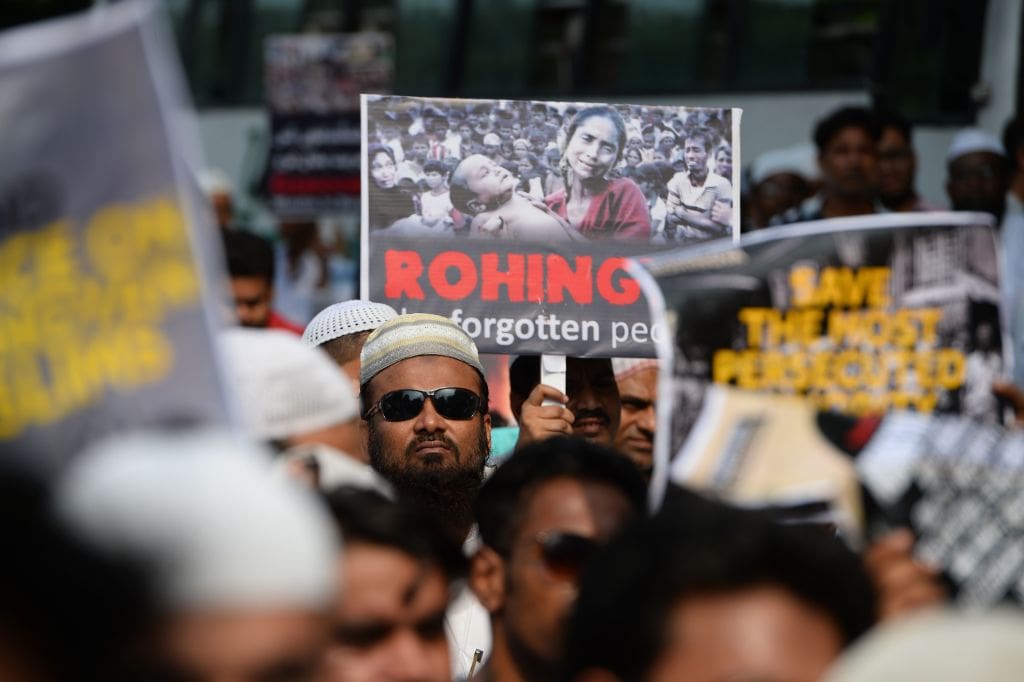Diplomatic Correspondent
Published:2025-06-19 23:40:28 BdST
Stop Rohingyas’ unlawful deportation to BD: Amnesty Int'l
The Indian government must immediately halt all deportations of Rohingya men, women and children, recognise them as refugees and treat them with the dignity and protection they deserve under international human rights law, Amnesty International has said.
Amnesty International, an international non-governmental organisation focused on human rights, with its headquarters in the United Kingdom, came up with the call on Thursday ahead of World Refugee Day.
In just the last month, the Indian authorities allegedly deported at least 40 Rohingya refugees, including children and older people, by forcing them off a naval ship and giving them life jackets before abandoning them in international waters near Myanmar.
In a separate incident, authorities also forced over 100 Rohingya refugees across the border into Bangladesh.
“From Zoroastrians and Tibetans to Afghans, Bangladeshis and Sri Lankan Tamils, India has long been a sanctuary for those fleeing persecution. But the Government of India’s recent actions, which include dumping Rohingya refugees at sea and forcefully deporting refugees without following any due procedure, unfortunately betray this proud tradition. History will remember how the government chose to treat the persecuted when they knocked on our door for safety,” said Aakar Patel, chair of the board of Amnesty International India.
The Indian government treats us like criminals
On 8 May, Indian authorities detained at least 40 Rohingya refugees living in Delhi, many of whom held identification documents issued by the UN Refugee Agency (UNHCR), according to their relatives who spoke with Amnesty International.
The refugees were then blindfolded, flown to the far-off Andaman and Nicobar Islands, and transferred onto an Indian naval vessel.
In the Andaman Sea, the refugees were allegedly given life jackets and forced into the water, leaving them with no choice but to attempt to swim to an island in Myanmar’s territory.
Speaking to Amnesty International, a relative of one of the Rohingya refugees said, “Once they reached ashore, they called us using the phone of a fisherman… After that, we haven’t heard from them. We are very worried about their safety.”
While the refugees are believed to have reached the shore safely, their current location and condition remain unknown.
A few days later, over 100 Rohingya refugees detained at the Matia Transit Detention Centre in Assam, the largest such facility in India, were transported by bus and then forced across the eastern border into Bangladesh, reportedly without being granted access to any formal legal process or asylum review.
On 17 May, two Rohingya refugees filed a petition urging India’s Supreme Court to intervene and immediately halt further deportations.
However, the Supreme Court dismissed the plea, with the judge questioning the credibility of the “beautifully crafted story” lacking substantive evidence, while criticising the timing of the petition filed during the recent India-Pakistan conflict.
Speaking to Amnesty International on the condition of anonymity due to the fear of reprisal, a Rohingya refugee based in India said, “We are living in constant fear of being deported. Even though we hold UNHCR refugee cards, the Indian government treats us like criminals. In the past few months, so many of my relatives and friends have been taken without warning, without explanation and deported to Myanmar… How can the Indian government send us back to a place where death is almost certain?”
Non-refugee status of Rohingya refugees and India’s legal obligations
On 8 May, in a case relating to the living conditions and deportations of Rohingya refugees, the Indian government told the Supreme Court that it neither recognises the UNHCR-issued refugee cards nor the Rohingyas as refugees since India is not a signatory to the 1951 UN Refugee Convention and therefore does not extend any refugee protections.
The Supreme Court of India ruled that only Indian citizens have the constitutional right to reside in the country.
Therefore, the situation of Rohingya refugees falls within the purview of the Foreigners Act, which allows for forced deportations.
Amnesty International believes that India’s non-ratification of the UN Refugee Convention cannot be an excuse to force people to conditions of danger, persecution and statelessness.
India is still required under the principle of ‘non-refoulement’ in customary international law to refrain from forcing back people to places where they would be at real risk of being subjected to serious human rights violations and abuses.
This is also a legal obligation under the International Covenant on Civil and Political Rights to which India is a party.
Cruel and unlawful deportations
Forcibly returning Rohingya refugees to Myanmar is both cruel and unlawful. They have been enduring the worst violence and persecution against their communities since the Myanmar military-led campaign in 2017.
In addition, tens of thousands of Rohingya seeking refuge in camps in Bangladesh face acute problems accessing essentials, such as food, adequate shelter and medical care, further aggravated by recent aid cuts.
“We urge the Government of India to uphold its legal obligations under international law and halt all deportations of Rohingya refugees at once. Recent allegations of deportations from the country must be urgently, independently and transparently investigated. India must ratify the 1951 Refugee Convention and bring national laws in line with international obligations on refugee protection,” said Aakar Patel.
“Prime Minister Narendra Modi has often emphasised India’s commitment to Vasudhaiva Kutumbakam, the belief that the world is one family. On this World Refugee Day, we call upon him and the Government of India to stand for this principle by recognising and protecting the Rohingya as refugees living in India.”
Unauthorized use or reproduction of The Finance Today content for commercial purposes is strictly prohibited.


